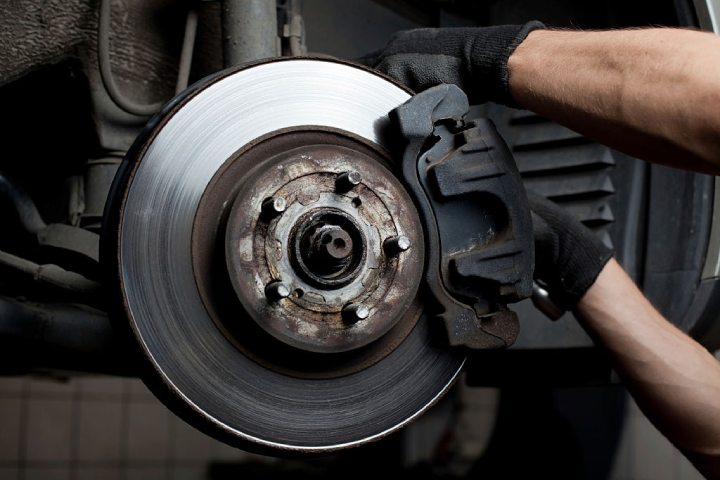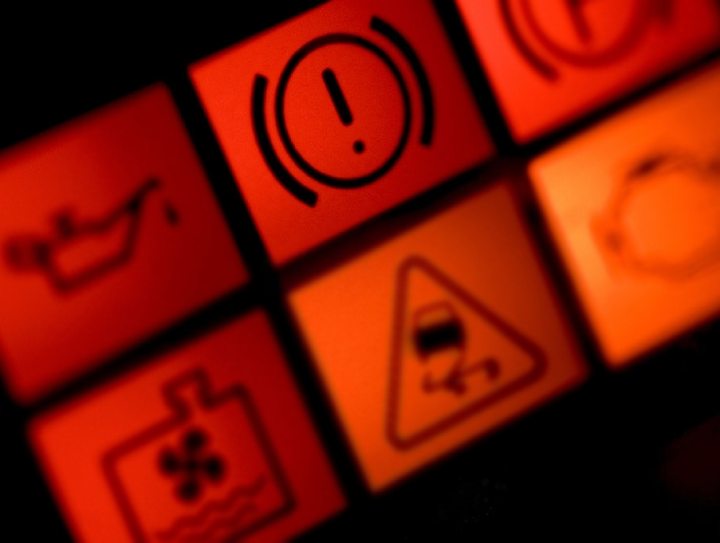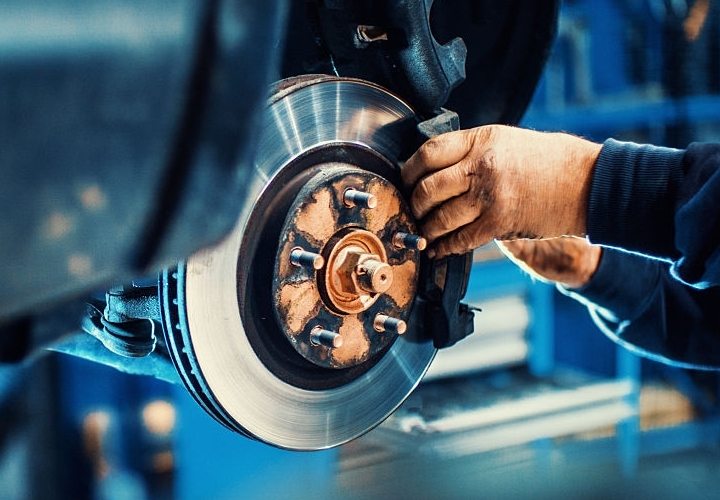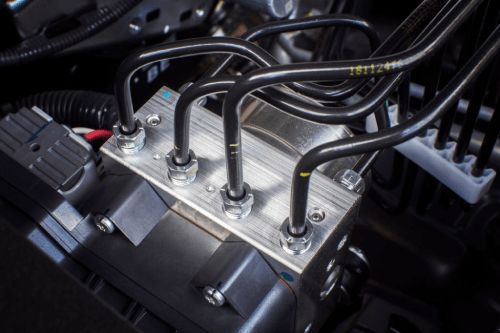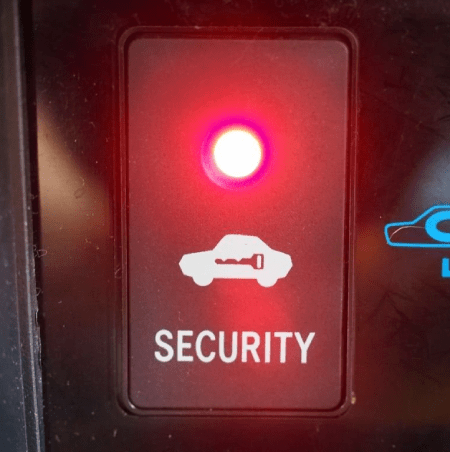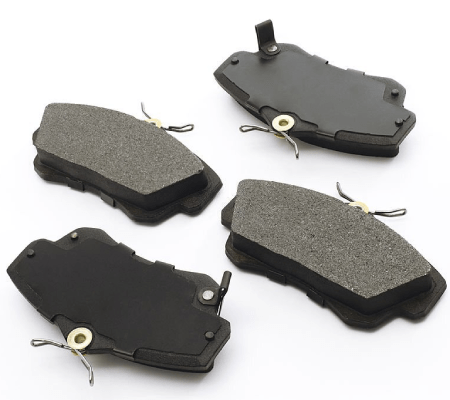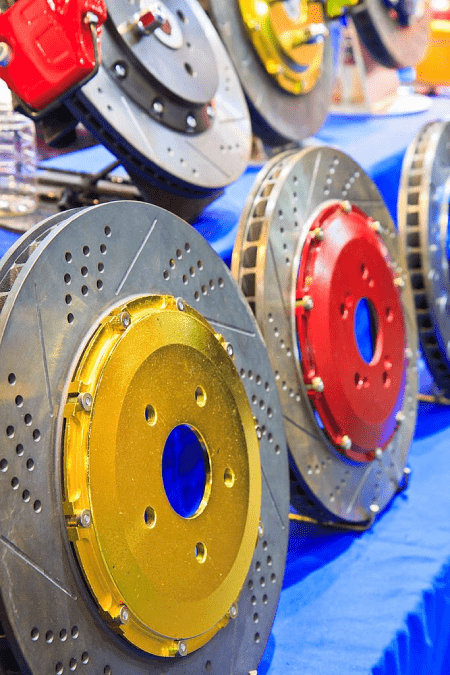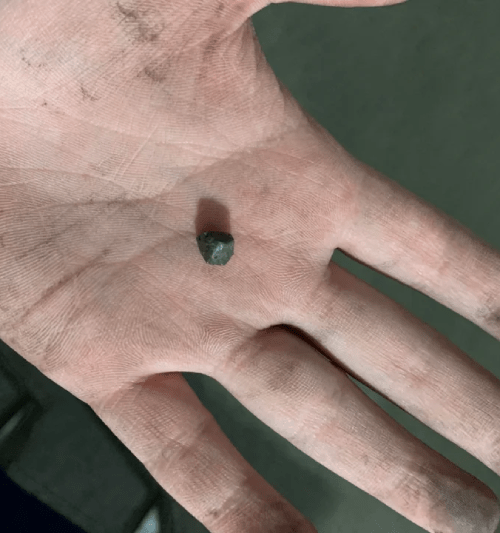Have you ever been driving and felt your car start to shake when you hit the brake pedal? If so, you’re not alone. Many drivers experience this problem at some point or another. There are a few different things that could be causing your car to shake when you brake, so it’s important to have your vehicle inspected by a mechanic to determine the cause.
This blog post will discuss some of the most common causes. I will also provide tips on fixing the problem if it is caused by one of these issues.
Here is why your car might be shaking when braking
The three main causes as to why your car starts shaking when applying the brakes are warped rotors, worn brake pads, or a sticky brake caliper. As the vehicle ages, these brake system components can start to fail.
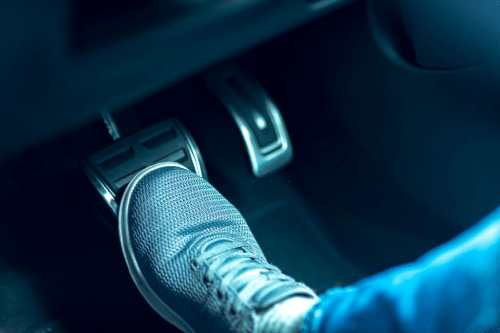
Car shakes because of warped rotors
Warped rotors are a common cause of shaking and usually occur due to wear and tear. Over time, the rotors can become misshapen from heat and friction. When this happens, they will no longer make contact with the brake pads evenly, which causes vibration.
How can you tell if you have warped rotors?
There are a few ways to tell if your rotors are warped. One way is to look at the brake pads. If they are worn down unevenly, it’s a good indication that the rotors are warped.
Another way to tell is by feeling. The rotors are likely warped if you feel a pulsing sensation when braking. Warped rotors can also cause your car to pull to one side when braking.
You can also have a mechanic check the rotors for warping. They will use a tool to measure the thickness of the rotor and compare it to manufacturer specifications. If the rotor is thinner than it should be, it’s likely warped.
Can you fix warped rotors? How?
If your rotors are warped, they will need to be replaced. This is typically a relatively straightforward process that any mechanic can do.
In some cases, you may be able to have the rotors resurfaced instead of replaced. This involves machining the rotor so that it is smooth and level again. However, depending on the severity of the warping, resurfacing may not be an option.
Once the rotors have been replaced or resurfaced, the problem should be fixed, and your car should no longer shake when you brake.
What can cause your rotors to become warped?
There are a few different things that can cause rotors to become warped. One common cause is brake fade. This occurs when the brakes get too hot from excessive use and start to lose their effectiveness.
Another common cause is driving on uneven or rough roads. This can put stress on the rotors and cause them to warp over time. Additionally, not having your brakes serviced regularly can lead to warped rotors.
Car shakes because of worn brake pads
Another common cause of shaking is worn brake pads. Your brake pads create the friction that stops your car, so they must be in good condition. Over time, brake pads can become worn down and no longer provide adequate stopping power.
How can you tell if your brake pads are past the limit?
There are a few ways to tell if your brake pads need to be replaced. One way is to look at the wear indicator on the pad. This small metal tab protrudes from the pad when it needs to be replaced.
If you don’t see the wear indicator, you can also remove the wheel and look at the pads. If the pads are less than a quarter-inch thick, they need to be replaced.
You can also listen for squealing when you brake. This is caused by the wear indicator rubbing against the rotor and is an indication that the pads need to be replaced.
Lastly, the car may start shaking when applying the brakes at high speeds, and you may also notice that your vehicle takes longer to stop than it used to.
What should you do?
If your brake pads need to be replaced, it’s best to have a repair shop do it. This is a relatively simple process that they can do in a short amount of time and can be done by any mechanic worth his salt.
In some cases, you may be able to replace the pads yourself. However, it’s important to ensure that you get the correct pads for your car. Additionally, it’s also essential to properly clean and lubricate the pad before installing it.
If you’re not comfortable replacing the pads yourself, it’s best to have a specialist do it.
Once the new pads are installed, the problem should be fixed, and your car should no longer shake when you brake if this was the cause.
Car shakes because of a sticky brake caliper
The third most common cause of shaking is a sticky brake caliper. The caliper is what houses the brake pads and helps to apply pressure to them. If the caliper becomes stuck, it can cause the pads to rub against the rotors, which creates vibration.
How can you tell if you have a sticky caliper?
There are a few ways to tell if you have a sticky brake caliper. One way is to look at the pads themselves. If they are excessively worn down on one side, it could indicate that the caliper is sticking.
A sticky brake caliper can also cause your car to pull to one side when braking. If you suspect that your caliper is sticking, you should have it inspected by a mechanic.
Can you fix a sticky caliper?
Although most of the time it is recommended to have it replaced, a sticky brake caliper can be fixed. This is a more complex repair that a qualified mechanic should do.
Can you drive the car if it’s shaking when braking?
The car remains safe to drive as long as the shaking does not get too violently. However, this does not mean that the problem should be ignored. If you cannot identify what is causing the problem yourself, any local garage should be able to diagnose and fix the issue.
Closing thoughts
As you can see, there are mainly three possible causes that can cause this shaking when applying the brakes: warped rotors, worn brake pads, or a sticky brake caliper.
It is easy to check each of these parts and should not cost too much to have any of them replaced.
If unable to get the task done yourself, any mechanic should be able to inspect the car and replace the broken parts.
Related content:
Does Walmart Do Brake Pads and Rotors?
Rock Stuck In Your Brakes? (Solved)
Do you have to bleed brakes after changing pads? Answered
My name is Jeffrey Williams and I have been a car mechanic for over 35 years. I am currently working NYC Auto Repair Shop, in New York City and recently developed a strong passion about blogging. I decided to put together this blog where I will try and answer the most commonly asked questions I get on a daily basis from my customers.

